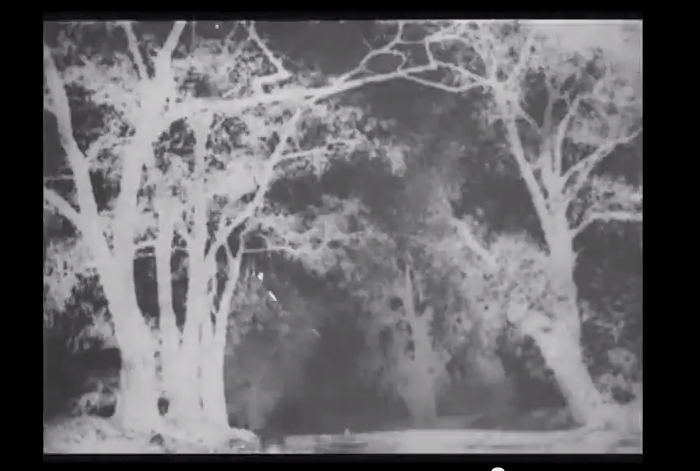The Russian director Andrei Tarkovsky is an undisputed legend in art house cinema, mainly for his renowned works Andrei Rublev, Stalker, and Solaris.
I finally saw his first full length film recently, Ivan's Childhood. It was released in 1962; previously Tarkovsky had only made student films no longer than 45 minutes. Ivan's Childhood is much different than his later works in many ways.
Absent are the shots that go on for minutes unbroken. Not to say the editing is fast, it is still slower than most Hollywood films, even of the era.
According to the Unspoken Cinema the average shot length of Stalker is a minute and eight seconds. The ASL in Andrei Rublev is 34.1 seconds and in The Mirror it's 23.2 seconds. By comparison, in Ivan's Childhood the ASL is 17.9 seconds. Not exactly MTV-style editing, but you get the point.
There is also a bit more experimentation with form than his later films in some ways. There is even some use of what appears to be handheld camera work. Tarkovsky also experiments with negative imagery in what results in a very striking effect.
Ivan's Childhood is shot in black and white. All of his later films would be in color, but he would often include B&W segments as in Stalker and Andrei Rublev.
Furthermore, at 95 minutes it is his shortest feature (this is disregarding his student shorts and the 63 minute documentary Voyage in Time). Three of his other features have a running time of over 2 hours and 40 minutes and his final film The Sacrifice is also quite lengthy at 149 minutes.
Overall, the film is much more accessible than most of his other work.
The director of photography was Vadim Yusov, who had worked with Tarkovsky on one of his student films and would later collaborate with him on Andrei Rublev and Solaris. He also later worked with another significant Russian director, Sergei Bondarchuk.
The film won the highest prize, The Golden Lion, at the 1962 Venice Film Festival. It was selected as the Soviet Union's entry for the Best Foreign Language Film at the Oscars, but didn't get a nomination. Still, the critical acclaim put him on the map in the world of international art house cinema.
The film's acclaim also marked a bit of a resurgence for Soviet cinema. Russian films were very influential in the 1920s due to great filmmakers like Sergei Eisenstein and Dziga Vertov. However, films soon fell under strict state control and Russian films weren't that significant on the international stage in the 1930s and 1940s.
The "Khrushchev Thaw" of the 1950s led to less censorship led to directors like Mikhail Kalatozov and Grigori Chukhrai making critically acclaimed films. This came to a head with Ivan's Childhood in 1962. Tarkovsky is now easily considered one of the two most significant Russian directors, along with Eisenstein.
Ivan's Childhood was based on a short story called "Ivan" by Russian writer Vladimir Bogomolov. Tarkovsky did not choose the story; he actually said it wasn't that good, according to IMDB trivia. However, this was actually a plus in his mind as he found weaker stories easier to adapt to film.
While the film does differ from most of the Tarkovsky oeuvre, I highly recommend it as essential viewing for anyone interested in art house cinema.
Please follow me on Facebook here or subscribe to my channel on Youtube.




No comments:
Post a Comment